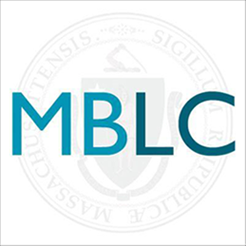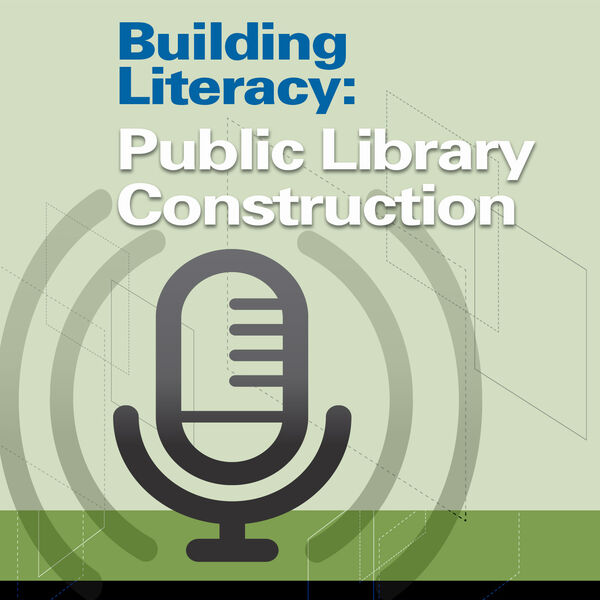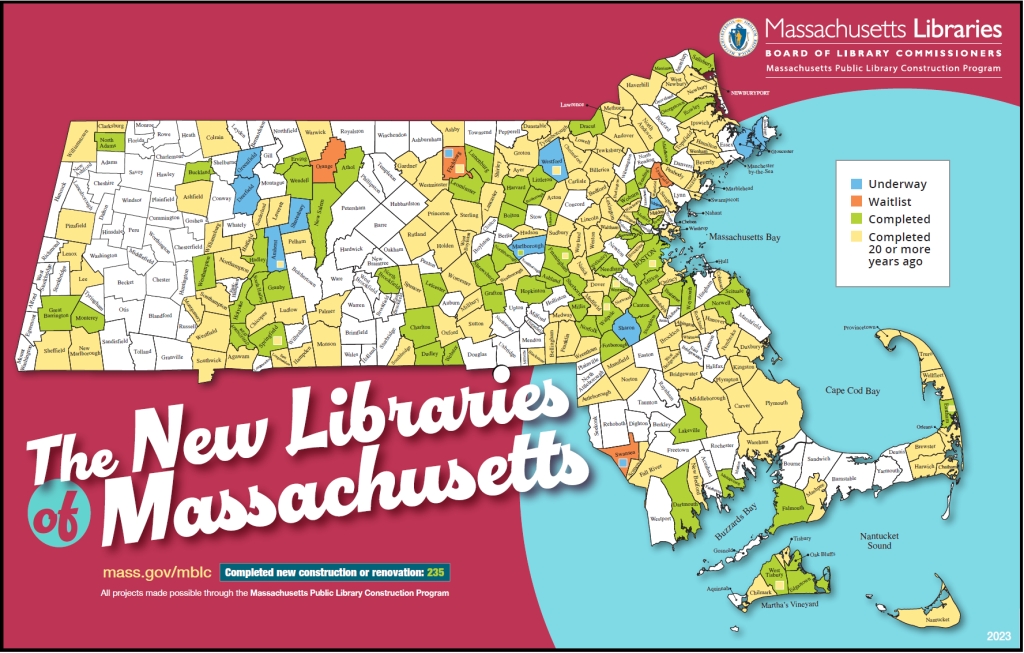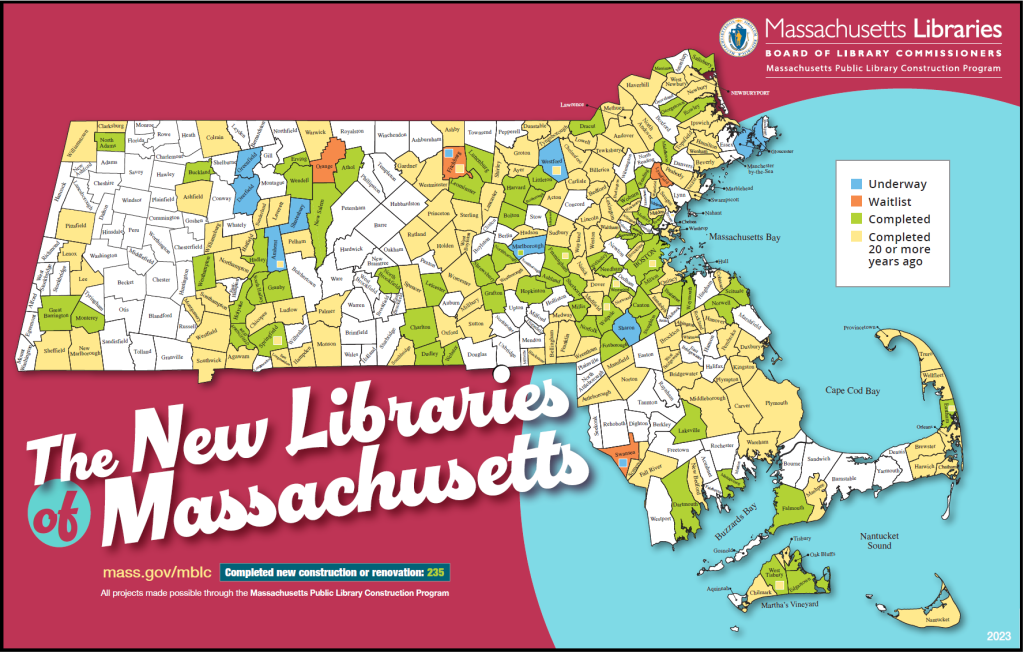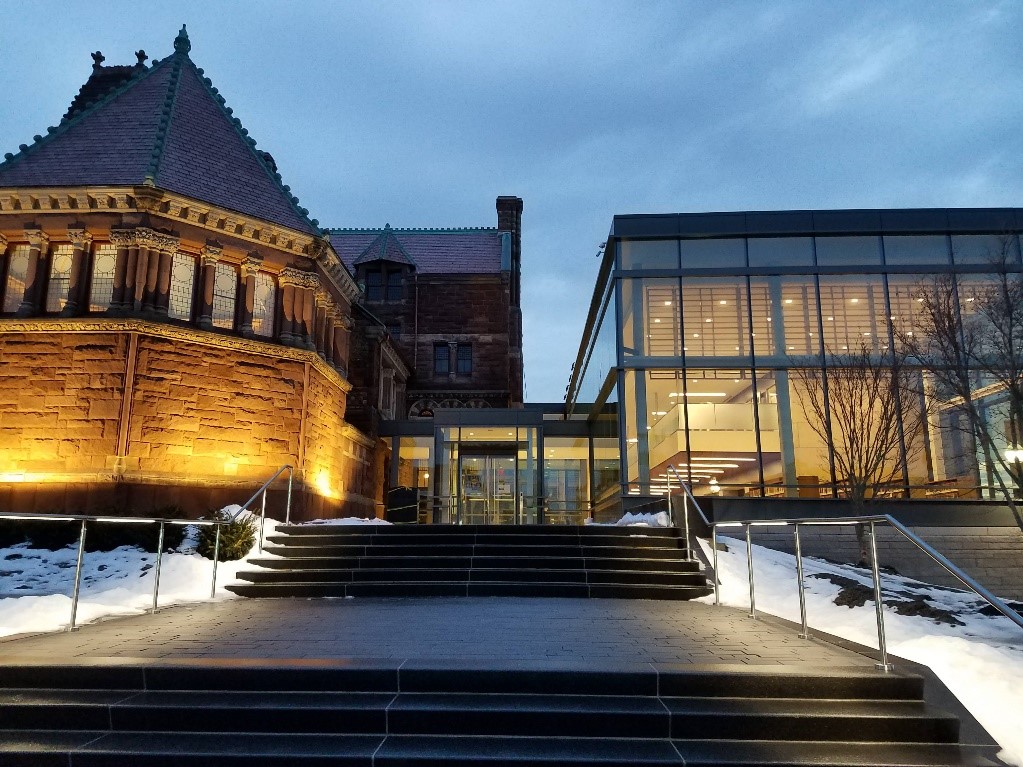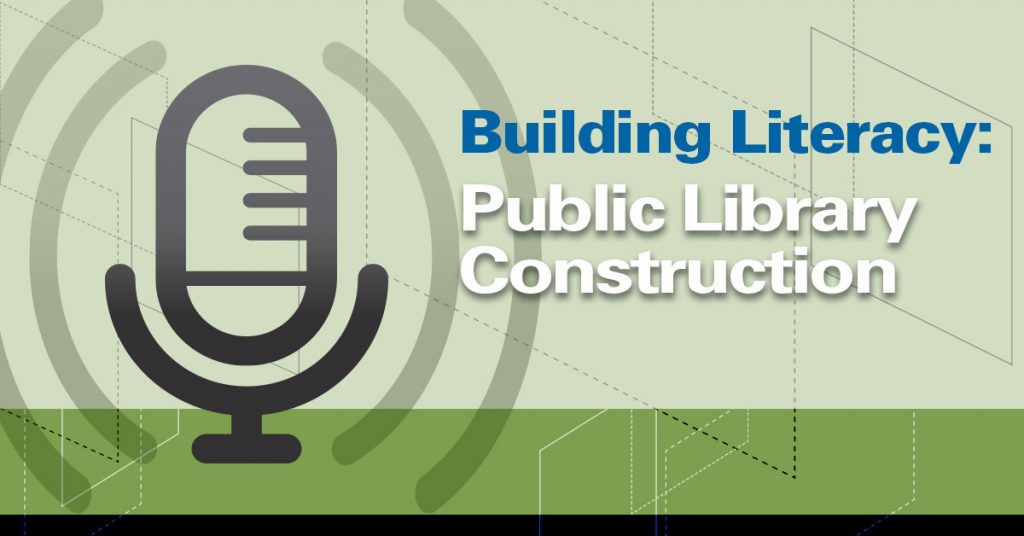By Andrea Bono-Bunker, Library Building Specialist
A holistic approach to sustainability considers both the environment and those who inhabit it. In construction, so much of our focus is on emissions, embodied carbon, and the breakdown of waste, but what about the human toll of building? As institutions with values that foster freedom, democracy, and self-fulfillment, do we have a responsibility to ensure that the materials and products used in our projects are sourced and manufactured in ways that also uphold those values? And how does a commitment to those values translate to the spaces we create for library staff and the public?
The Building Literacy: Public Library Construction podcast has two new episodes that explore the issues above with a case study of the New Canaan Library in New Canaan, CT. In episode one, President and CEO, Lisa Oldham, and Environmental Social Governance (ESG) Coordinator, Miki Porta join us to discuss their dedication to an all-electric future, their pilot project with local nonprofit Grace Farms on their Design for Freedom initiative, and fundraising best practices for a project where 75% of the funding came from private donors. In episode two, we delve into how intention in the design and construction process led to welcoming, well-used spaces and their decisions’ impacts on the library’s service model as it relates to the community they serve. We will hear about everything from unexpected connections to a learning framework meant to enhance each part of the library experience for all ages.
Episode 1: Holistic Sustainability in the New Canaan Library Project
Episode 2: Curating Services in Intentional Spaces at New Canaan Library
The New Canaan Library recently was featured in American Libraries’ 2023 Library Design Showcase under the Climate-Conscious category. To learn more about the project and its history, visit the library’s website.
While typically Massachusetts- focused, the Building Literacy: Public Library Construction podcast covers topics and material of interest to any stakeholder in a public library construction project. No matter where you are in your journey to a new or improved library, check out other episodes on this podcast and Library Space: A Planning Resource for Librarians.
